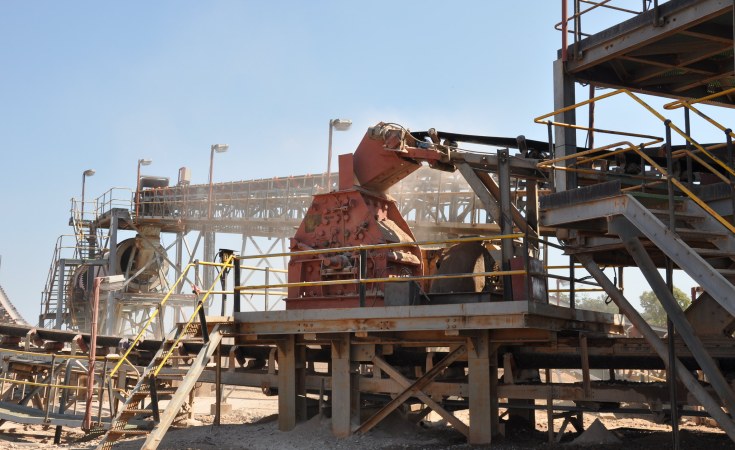The omens are good, with Zambia enjoying an abundance of goodwill from the international community and President Hakainde Hichilema acknowledged as a pragmatic economic custodian.
Zambia's mining industry is booming with the production of multiple mineral raw materials, including copper. Contributing heavily to the country's economy, mining in Zambia provides export income, royalty payments and employment.
This deep-rooted institutional understanding of the copper industry, coupled with its world-class resource base and exceptional peace and security record in a volatile region, explains why Zambia has historically attracted miners from across the globe.
- The Zambian government will make further cuts to copper mining royalties, Finance Minister Situmbeko Musokotwane said.
- Zambia uses a sliding scale mining royalty system based on the copper price. Under the planned changes, charges will apply on the incremental value in each adjusted price band, as opposed to the aggregate value, Dr Musokotwane told parliament.
- Musokotwane's other key budget objectives for next year are an economic growth of at least 4 per cent in 2023, unchanged from a target set in the medium-term budget plan.
- Lower annual inflation to the 6 per cent to 8 per cent target band by the end of 2023, a year earlier than previously forecasted.
In his budget speech, Zambia's Finance Minister Situmbeko Musokotwane told parliament that the government would make further cuts to copper mining royalties. He also said the government would increase participation in the mining sector by acquiring "golden shares" and that it had made headway in resolving problems at Konkola and Mopani copper mines, where it is seeking new investors.
In his budget address to parliament, and in a move seen to incentivise mining output, Dr Musokotwane said that restructuring the royalty system will cost the government K2.8 billion in lost revenue next year. Buoyant markets have seen Zambia benefit from super royalties at the premium 10 per cent rate over the past 15 months.
Presenting the 2023 budget, Musokotwane also said the 2022 budget deficit is projected at 9.8 per cent of GDP, wider than an estimated deficit of 6.7 per cent seen in October last year. The deficit is forecast to be no more than 7.7 per cent of GDP in 2023, up from an earlier target of no more than 6.3 per cent seen in February.
Economic growth was projected at 3 per cent in 2022, with a 2023 growth target of 4 per cent. Last year, the economy grew by 4.6 per cent.
Musokotwane's budget statement will allow miners to deduct royalties from income taxes, resolving a situation miners had decried as double taxation.
First Quantum Minerals Ltd., which accounts for more than half of Zambia's copper production, stands to benefit the most. The shares of First Quantum Minerals Ltd gained as much as 4.9 per cent in Toronto.
First Quantum Minerals Limited explores for, mines, and produces copper cathode, copper in concentrate, and gold. The Company also produces sulfuric acid. The company is listed on the Toronto Stock Exchange.
Zambia uses a sliding scale mining royalty system based on the copper price. Under the planned changes, charges will apply on the incremental value in each adjusted price band instead of the aggregate value, Musokotwane said.
Zambia gets 70 per cent of its export earnings from mining and has pledged to review its mining tax policy and increase exploration to boost and diversify production.According to figures from the Observatory of Economic Complexity (OEC), a global data visualisation tool for international trade, as of 2020, Zambia exported US$5.77 billion in raw copper, making it the first largest exporter of raw copper in the world. In the same year, raw copper was Zambia's first most exported product. The main destination of raw copper exports from Zambia is Switzerland (US$2.3 billion), China (US$1.19 billion), Namibia (US$1.15 billion), Singapore (US$660 million), and India (US$276 million).
The fastest growing export markets for raw copper of Zambia between 2019 and 2020 were Singapore (US$325 million), Switzerland (US$119 million), and Namibia (US$105 million).
Lowering mining energy tariffs would further help to restore the competitiveness of Zambia's copper exports, and Zambia's Chamber of Mines has been arguing for this too.
The outcome of debt restructuring with international creditors and negotiations for a new IMF programme are likely to determine how quickly and confidently the government can move ahead with such reforms.
Zambia is using the Group of 20's Common Framework to engage with creditors, a template that required the nation to seek help from the International Monetary Fund. An official bilateral creditors committee has given the government assurances that they're ready to negotiate, thereby unlocking a US$1.3 billion IMF bailout.
The government now needs to negotiate with official bilateral creditors a memorandum of understanding for the restructuring and seek comparable treatment from commercial lenders, including the holders of US$3 billion of outstanding Eurobonds. According to the IMF, Zambia needs US$8.4 billion in debt relief through 2025. The World Bank said this equates to a 45 per cent cut in net present value for creditors.
In any economic downturn, adopting a capital and financing structure that enables access to these funding sources and other sources of alternative financing is likely to become increasingly important.
President Hakainde Hichilema's ambitious goal of increasing copper output to 2 Mt by 2026 and restoring Zambia to the status of the largest producer in Africa will require investment in exploration and expansion at a scale not seen since the late Queen Elizabeth II visited Chingola in the 1970s.
President Hakainde Hichilema's government has taken a more business-friendly approach than his predecessors since coming to power last year and trying to incentivise mining output has been central to its plans.
And with an engaged government committed to stable and predictable policies, it would be unwise to bet against Zambia realising such an advantage.


